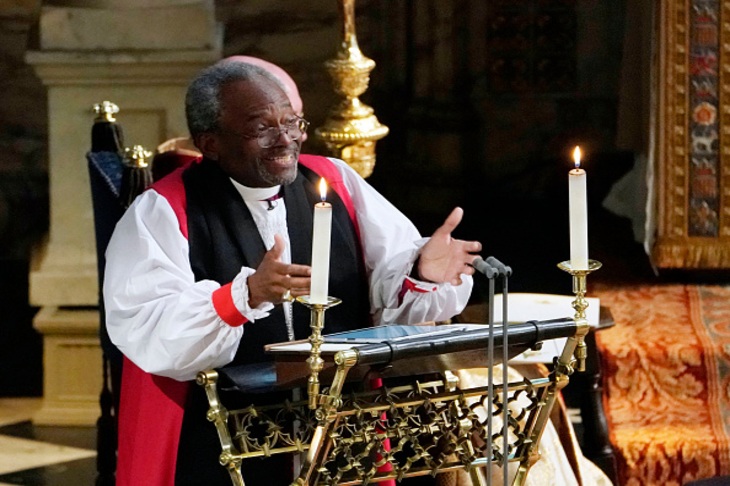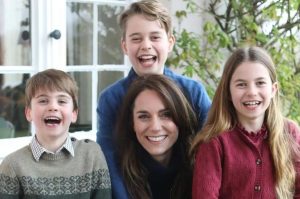It is my sad task to introduce a discordant note into the hosannahs of excited self-congratulation that greeted the wedding yesterday of Rachel Meghan Markle, the American actress and divorcee, to Prince Harry, sixth in line to the throne.
I know people here who donned morning suits and went to swish parties to witness the event and cheer as Bishop Michael Curry, the first African-American bishop to lead the Episcopal Church in the US, delivered his long, histrionic sermon on “the power of love.” Finally, sensing that he was losing his audience, er, congregation, he wrapped it up with a summary “We got to get you all married.”
I should note that, at least as regards Great Britain, I am an ardent monarchist. I like the Queen. I think she understands perfectly what Walter Bagehot meant when he distinguished between the “dignified” and the “efficient” aspects of government. “We must not,” Bagehot famously wrote, “let in daylight upon magic.” The Queen has done her bit to preserve the magic and dignified reserve of monarchy. She is a good thing.
The same cannot be said of her children. It used to be rumoured that Prince Charles intended to declare himself “defender of the faiths,” plural, when (hope nudges me to say “if”) he is crowned. Not dignified, that.
Nor of course was his first wife, Princess Diana, the mother of his children, shy about letting daylight in upon magic. Henry VIII had Anne Boleyn beheaded on trumped up charges of adultery. Diana swanned around in a bubble of celebrity and nauseating sentimentality on account, partly, of her patent adulteries.
Let us stipulate that it is evidence of enlightenment that Princess Diana was not beheaded (not, anyway, by an executioner). Still, what does it tell us about the moral state of the Church of England that the whole Charles-Camilla-Diana-James Hewitt-Dodi Fayed matrix could transpire in public?
In 1937, Edward VIII precipitated a Constitutional crisis by insisting on marrying a twice-divorced American, “the woman I love,” he said, anticipating Rev. Curry’s theme.
It was a long road from there to Rowan Williams, the former Archbishop of Canterbury who described himself as a “Druid” and “hairy leftie” and who confided that the adoption of aspects of Sharia, i.e., Islamic law, was “unavoidable” in England.
And it is a long road from Rowan Williams to St. George’s Chapel at Windsor yesterday when Prince Harry and Meghan Markle became the Duke and Duchess of Sussex.
Is it progress? In his novel England, England, Julian Barnes imagines a future in which the Isle of Wight is transformed into a gigantic theme park in which all that is most picturesque about England is recreated. Eventually, the Royal Family is induced to leave London to live in a half-sized but “fully modernized Buck House,” where they wave at tourists from 11:00 to 11:15 every morning but are free from the salacious curiosity of journalists, “the Privy Purse . . . replaced by a profit-sharing scheme.”
We’re not there yet, not quite. But we’re on the way. Is it a good thing, all this down-home, latitudinarian, aw-shucks, pomo attitude towards tradition and morality?
That depends on whether you think the Church of England is a Church or a concession and whether you believe the Royal Family are the embodiment of the state or a public entertainment.
Institutions become decadent not when they become depraved, necessarily. The key thing is their existential hollowing out, so that the façade persists but without the vital element of conviction and belief.
I suspect that, whatever personal happiness Harry and Meghan will now enjoy (and here’s wishing them luck), their wedding was another stage in the emptying out of the British monarchy.
In 1881, the Chinese ambassador to England, endeavoring to convey the sense of “Protestant Episcopal Chruch,” came up with “Society of Contradictory Overseers.” I wonder what he would say today?


















